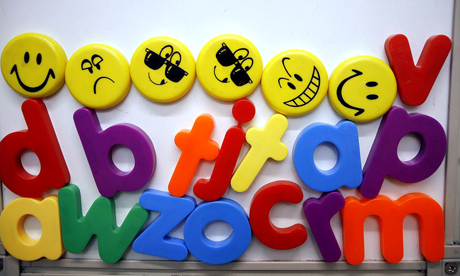
Smileys or emoticons – strings of symbols used to represent faces – have become a standard feature of modern communication, used in internet chats and text messages as emotional shorthand. With just a handful of characters, users can depict whether they are happy, angry, confused or sad.
According to Russian media reports, however, telecoms entrepreneur Oleg Teterin has been granted a trademark on one of the most common icons in circulation — the combination used to denote a winking face: ;-).
Teterin said he plans to charge companies that used a virtual wink in the course of their business.
"I want to highlight that this is only directed at corporations; companies that are trying to make a profit without the permission of the trademark holder," he told Russia's NTV.
Teterin, who runs a mobile advertising company called Superfone, followed up by saying that those who wanted to carry on using winking faces would have to pay a substantial sum. (This may mean he has in fact trademarked "animated" emoticons, which display a series of images in a loop so they appear to move.)
"Legal use will be possible after buying an annual license from us," he told Kommersant news. "It won't cost that much – tens of thousands of dollars."
Although typographical jokes have appeared throughout history, the first hi-tech emoticon was used by American computer scientist Scott Fahlman in 1982. He proposed using them on internet message boards as a way of distinguishing jokes from serious statements.
Despite the long history of smileys, however, it is not the first time somebody has succeeded in claiming ownership of emoticons.
In 2006, Finnish law student Tuomas Mattila was granted a trademark on a number of symbols by the authorities in Helsinki.
At the height of the dotcom boom, meanwhile, Texan "demotivational" poster company Despair Inc was granted a trademark on the sad-faced - or "frowny" - emoticon: :-(.
In what was intended to be a joke, the company said it would sue "anyone and everyone who uses the so-called 'frowny' emoticon, or our trademarked logo, in their written email correspondence. Ever."
Instead of succeeding in its satirical aims, however, Despair was forced to release a statement after internet users failed to see the joke.

কোন মন্তব্য নেই:
একটি মন্তব্য পোস্ট করুন